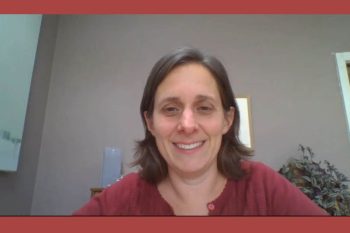“These are the people that we need to be thinking about when we think about just transition.”
Interview with Prof. Dr. Lucie Middlemiss, University of Leeds


All over Europe, from Spain to the UK, energy prices are currently soaring and the impact it will have this winter on poverty will be huge. In addition to not knowing how to pay the bill, vulnerable people often suffer from physical and mental diseases caused by their situation. Recognizing the struggle, addressing the issue and getting help needs to be made much easier. The consequences of energy poverty on health are widely acknowledged, but current approaches to tackle energy poverty are not seeing the full picture. Considering economic or biomedical indicators is too narrow a perspective.
In this “City Stories” podcast episode, we talk with Lucie Middlemiss about who the energy poor are in Leeds (and elsewhere), why they should be involved in finding the right answers, but also how she thinks research can help improve energy poverty policies in cities in the UK and Europe. Lucie is Professor of Environment and Society at the School of Earth and Environment at the University of Leeds. Lucie has an impressive track record of research on energy poverty with that particular focus on what is called the “lived experience” approach.
“It can feel to people like
everything is against them.”
On cold days, fierce winds blow through poorly insulated windows in Leeds. And this happens in many of the over hundred high rise buildings owned by the City Council. 7500 households live in these buildings and they endure freezing winters in these towers built in the 60s’. They are what we call people in energy poverty. Leeds is the third largest city of the UK, and the share of low-income inhabitants is significant. 10% of Leeds’s households have experienced energy poverty in 2018. With the “Affordable Warmth Strategy“, the council seeks to improve housing conditions so to ensure that everyone can “afford to stay warm” by 2030.
There is lots of information on that topic out there. Here are a few that you could start with:
- Experimentation in cities: WELLBASED, the project testing six city pilot intervention programs that aim at improving health, wellbeing and equality for people affected by energy poverty
- Research article: “Humanising the Energy Transition: Towards a National Policy on Energy Poverty in the Netherlands”
- Report: “Moving beyond the state of art of energy measurement”
- BBC interview with energy poverty research pioneer Brenda Boardman, whom Lucie mentions during this episode.





